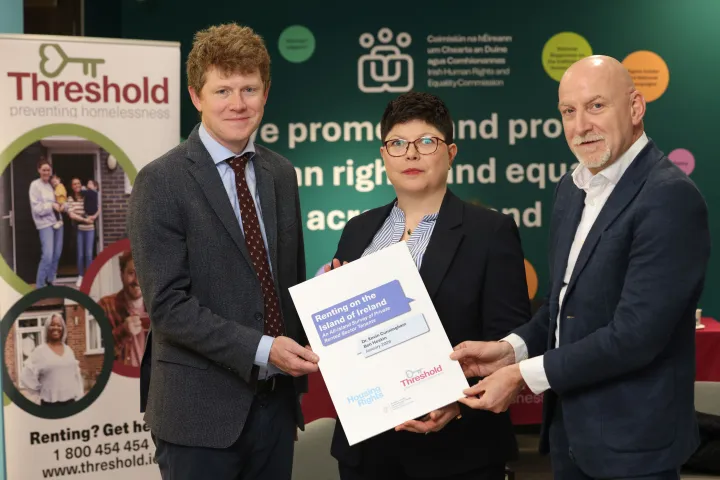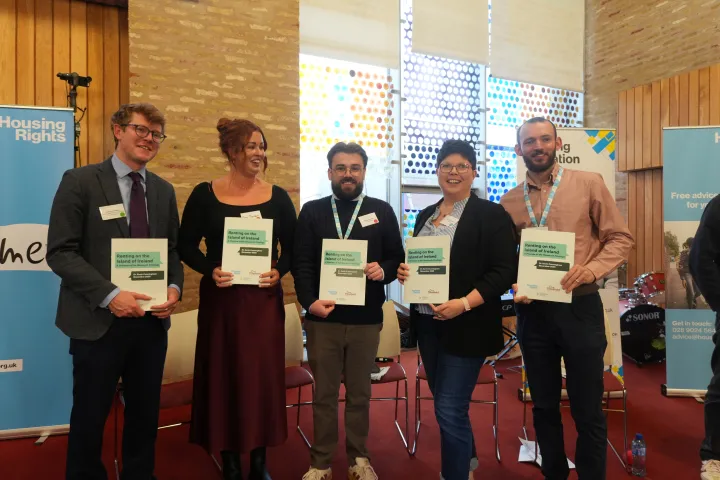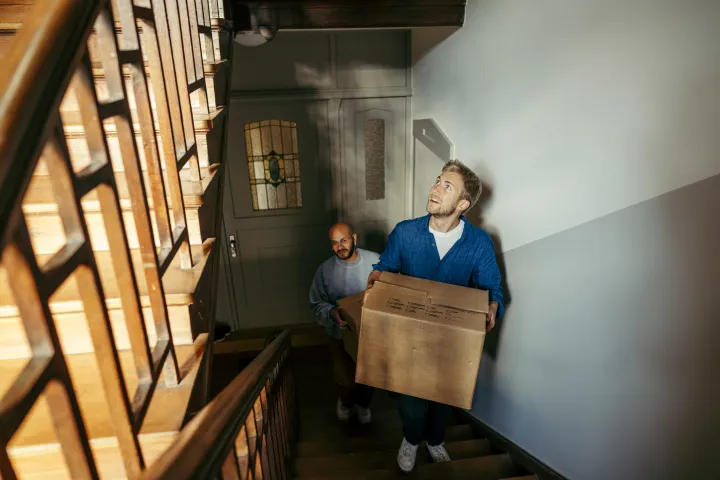New figures obtained by Housing Rights from the Department for Communities show that 82% of all private renters in receipt of Local Housing Allowance in Northern Ireland face a shortfall between their housing benefit and the cost of their rent.
As of March 2023, there were 35,290 households in Northern Ireland in receipt of Local Housing Allowance through Universal Credit. 86% (30,190) had a shortfall between their housing support and the cost of their rent. The average shortfall was £116 per month.
Of the 24,050 households in receipt of housing benefits, 78% (18,700) had a shortfall between their housing benefit and the cost of their rent. The average shortfall was £90 per month.
Stephen Morrison, Policy Co-ordinator for Housing Rights said:
“These are incredibly worrying figures for the private rented sector and particularly for low-income and vulnerable households. When compared with last year, the shortfall between tenants’ housing support and rental costs has risen by 15%.
The backdrop of this is an extremely overheated private rental market in Northern Ireland which has seen rent price increases of 10% [1] while people’s support has stagnated.”
Despite the rising costs of rent, Local Housing Allowance, the rate at which housing benefit / Universal Credit is paid to people renting privately, has been frozen since 2020.
To compound these worries, Discretionary Housing Payments, a vital lifeline on which over 10,000 households depended on to assist with this shortfall has been stopped for those who have been receiving them for 2 years or more.
Mr Morrison continued:
“With winter looming, we are fast approaching an affordability crisis in the private rental sector, as rising costs and stagnating support will drive many tenants into arrears or homelessness.
We call on the UK Government to immediately unfreeze Local Housing Allowance and realign it to the 30th percentile of affordability. This change is the minimum required to recognise the scale of this crisis, and will in the short-term ease payment fears for the thousands of people feeling the sting of this cost of living crisis.”
-ENDS-
Notes to editors:
- Spokespeople available on request.
- Figures provided by Department for Communities in response to a request by Housing Rights.
- Local Housing Allowance (LHA) is used to calculate Housing Benefit or the housing support element of Universal Credit. The rate paid to tenants is calculated is based on the number of bedrooms in a home, and on which Broad Rental Market Area the home is located. Rates can be found on the Northern Ireland Housing Executive website.
- Discretionary Housing Payments provide a ‘top-up’ to cover the shortfall between LHA and rental costs but has recently been limited by NIHE due to demand outstripping supply.
- In June 2022, the Welfare Mitigations Independent Panel recommended the establishment of a Financial Inclusion Service to provide advice and assistance for low-income families who have been impacted by shortfalls in Local Housing Allowance. This would provide access to a grant to help meet the shortfall.
- Housing Rights supports the recommendation of the Welfare Mitigations Independent Panel and is calling on the Government to immediately unfreeze Local Housing Allowance and realign it to the 30th percentile of affordability (to cover the costs of the cheapest 30% of rental properties available in an area), increasing incrementally to the 50th percentile.
- Since 2019 the Cliff Edge Coalition, a group of over 100 organisations concerned about changes to social security have been calling for safety nets to low-income private renters to be strengthened. The Coalition has lobbied for support in addition to the Discretionary Housing Payment fund to support households renting from private landlords.
- Housing Rights is the leading specialist provider of advice, information, and training on housing and homelessness issues. The charity was established in 1964 and works to improve lives by tackling homelessness and housing problems.
- Housing Rights advisers can offer free and confidential advice on dealing with rent arrears or mortgage arrears and free services for homeowners facing possible repossession including court representation. The charity also offers advice on benefits entitlements, accessing grants for rent deposits, as well as a free housing mediation service that can help resolve disputes in privately rented properties.
- For enquiries contact Noeleen Lynn, Digital Communications and Marketing Officer, [email protected] / [email protected], telephone 02890 245640 / 07512 203867.
[1] Index of Private Housing Rental Prices, UK - Office for National Statistics (ons.gov.uk)


